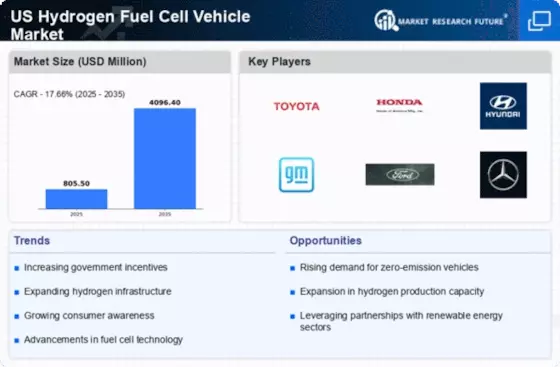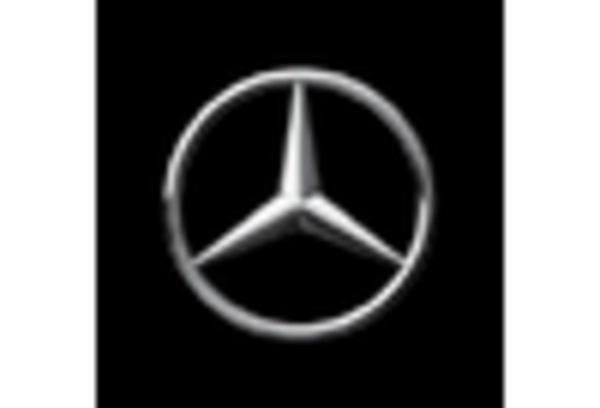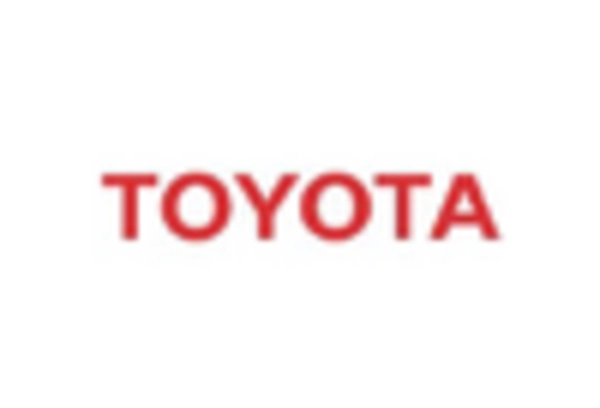Partnerships and Collaborations
Strategic partnerships and collaborations among stakeholders in the US Hydrogen Fuel Cell Vehicle Market are becoming increasingly prevalent. Automakers, energy companies, and government agencies are joining forces to develop hydrogen infrastructure and promote fuel cell technology. For example, initiatives like the Hydrogen Council, which includes major industry players, aim to accelerate the commercialization of hydrogen solutions. These collaborations facilitate knowledge sharing, resource pooling, and coordinated efforts to address challenges in the market. As partnerships strengthen, the US Hydrogen Fuel Cell Vehicle Market is poised for growth, benefiting from shared expertise and enhanced infrastructure development.
Growing Consumer Awareness and Demand
Consumer awareness regarding climate change and the benefits of sustainable transportation is on the rise, significantly impacting the US Hydrogen Fuel Cell Vehicle Market. Surveys indicate that a substantial portion of the population is willing to consider alternative fuel vehicles, including hydrogen FCVs, as viable options. This shift in consumer sentiment is further supported by educational campaigns and marketing efforts from automakers. As consumers increasingly prioritize eco-friendly choices, the demand for hydrogen fuel cell vehicles is expected to grow. This trend may lead to a broader acceptance of FCVs, thereby enhancing the market's potential in the US Hydrogen Fuel Cell Vehicle Market.
Investment in Research and Development
Investment in research and development (R&D) is a critical driver for the US Hydrogen Fuel Cell Vehicle Market. Major automotive manufacturers and technology firms are allocating significant resources to innovate and improve hydrogen fuel cell technologies. For instance, companies like Toyota and Honda have made substantial investments in developing more efficient fuel cells and hydrogen storage systems. This focus on R&D not only enhances vehicle performance but also reduces production costs, making hydrogen FCVs more competitive with traditional vehicles. As advancements continue, the US Hydrogen Fuel Cell Vehicle Market is likely to experience accelerated growth, driven by improved technology and increased consumer adoption.
Environmental Regulations and Standards
The US Hydrogen Fuel Cell Vehicle Market is increasingly influenced by stringent environmental regulations aimed at reducing greenhouse gas emissions. The Environmental Protection Agency (EPA) has established regulations that encourage the adoption of zero-emission vehicles, including hydrogen fuel cell vehicles (FCVs). As states implement their own regulations, such as California's Advanced Clean Cars program, the demand for FCVs is likely to rise. This regulatory landscape not only promotes cleaner transportation options but also aligns with national goals to achieve net-zero emissions by 2050. Consequently, manufacturers are incentivized to invest in hydrogen technology, thereby fostering growth in the US Hydrogen Fuel Cell Vehicle Market.
Advancements in Hydrogen Production and Distribution
Advancements in hydrogen production and distribution technologies are pivotal for the US Hydrogen Fuel Cell Vehicle Market. Innovations in electrolysis and steam methane reforming are making hydrogen production more efficient and cost-effective. Additionally, the development of a robust hydrogen distribution network is essential for supporting the widespread adoption of fuel cell vehicles. Government initiatives, such as the Hydrogen and Fuel Cell Technologies Office, are actively promoting research in these areas. As production and distribution technologies improve, the availability of hydrogen fuel is expected to increase, thereby facilitating the growth of the US Hydrogen Fuel Cell Vehicle Market.
















